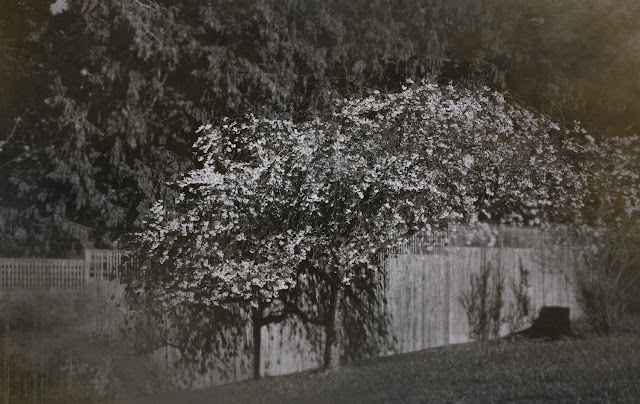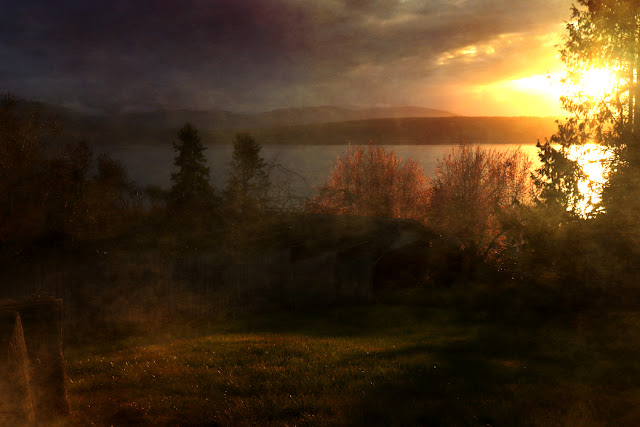Notes: Chapter 1 - The Beginning
Throughout the book, Evola will be focusing on contrasting Modern civilization and the world of Tradition (always with a capital T, it's important to understand that tradition is not being used here to mean wear dresses and bake bread).
He starts Chapter 1 off appropriately by distinguishing between the two:
"In order to understand both the spirit of Tradition and its antithesis, modern civilization, it is necessary to begin with the fundamental doctrine of the two natures. According to this doctrine there is a physical order of things and a metaphysical one; there is a mortal nature, and an immortal one; there is the superior realm of 'being' and the inferior realm of 'becoming.' Generally speaking, there is a visible and tangible dimension and, prior to and beyond it, an invisible and intangible dimension that is the support, the source, and the true life of the former."
So modern civilization is characterized by: physical, mortal, inferior becoming, visible, tangible
Whereas, Traditional civilizations are: metaphysical, immortal in nature, superior being, invisible, intangible. Evola states that the true Traditional mind saw the metaphysical realm as the source of the physical realm. Obviously this strongly contradicts the modern mind, which is prone to Materialism and judges knowledge and truth by sensory [physical] experience and measurement.
"Anywhere in the world of Tradition, both East and West, and in one form or another, this knowledge (not just a mere 'theory') has always been present as an unshakable axis around which everything revolved."
Here Evola is emphasizing that these were key components of reality that ancient Traditional people knew, not theorized, to be true.
"As difficult as it may be for our contemporaries to understand this, we must start from the idea that the man of Tradition was aware of the existence of a dimension of being much wider than what our contemporaries experience and call 'reality.' Nowadays, after all, reality is understood only as something strictly encompassed within the world of physical bodies located in space and time."
"Certainly, there are those who believe in something beyond the realm of phenomena. When these people admit the existence of something else, however, they are always led to this conclusion by a scientific hypothesis or law, or by a speculative idea, or by a religious dogma; they cannot escape such an intellectual limitation. Through his practical and immediate experiences, modern man, no matter how deep his 'materialistic' or 'spiritual' beliefs may be, develops an understanding of reality only in relation to the world of physical bodies and always under the influence of his direct and immediate experiences."
So, many modern people will claim to believe in something metaphysical. They attempt to break through the physical barrier, into that other superior realm. The important distinction here is that modern people try to escape this inferior physical realm through belief. They believe, but they don't know. Whereas Traditional humans knew. Modern man will attempt to believe in something non-physical and eternal, but only through religious dogma, scientific hypothesis, or their own speculation. These are all paths of the temporal, the intellect, what Evola calls the intellectual limitation of Modern men.
"The worst type of materialism, therefore, is not a matter of an opinion or of a 'theory,' but it consists in the fact that man's experience no longer extends to non-physical realities."
Evola maintains that one cannot know the metaphysical by coming from the physical, just as Traditional knowledge was that the physical sprang from the metaphysical, and not the other way around.
Keep in mind, this Modern influence started a very long time ago (recall that Evola considers all of history to be modern).
"The experience of Traditional man used to reach well beyond these limits, as in the case of some so-called primitive people, among whom we still find today a faint echo of spiritual powers from ancient times. In Traditional societies, the 'invisible' was an element as real, if not more real, than the data provided by the physical senses. Every aspect of the individual and of the social life of the people belonging to these societies was influenced by these experiences."
So, because we are of Modern minds, very much attached to the rational, the physical, the so-called scientific... is it even possible to push out of our physical box over to a metaphysical vastness where we know, and not merely believe?
Here in Chapter 1, Evola points toward a potential path, which I'm sure will be discussed much more in-depth throughout the book, that is the path of the Ascetic.
"...The experience of asceticism was regarded as the path leading to the other region, or to the world of 'being,' or to what is no longer physical but metaphysical. Asceticism traditionally consisted in values such as mastery over oneself, self-discipline, autonomy, and the leading of a unified life. By 'unified life' I mean an existence that does not need to be spent in search of other things or people in order to be complete and justified."


